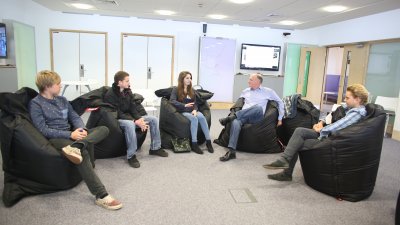Project details
| Project lead | Dr Jeremy Richards |
|---|---|
| Start date | 2015 |
| End date | Ongoing |
This paper contributes to the knowledge of entrepreneurship education by highlighting the key defining characteristics of EEEPS. These are used, not to propose a unique single definition, but rather to create a segmentation and taxonomy of EEEPs based on the intensity of these characteristics. The paper also brings together in one place the key challenges facing EEEPs cited in the literature providing a valuable resource for educators involved in the design and delivery of such programs.
While the interest in EEEPs is growing on a global level, there is still an underlying complication in a lack of a clear definition of what constitutes, or warrants, the label 'experiential learning' within the realms of entrepreneurship education.
Examples of experiential entrepreneurial learning cited in the literature include business planning exercises; opportunity identification and assessment tasks; guest lectures from entrepreneurs; business simulations; creating and/or operating a real business as a short-term assignment or even requiring students to create a new venture as the core learning vehicle throughout the duration, or for a substantial portion, of the program.
The literature highlights a myriad of challenges facing EEEPs, including managing multiple stakeholders; recruiting, training and motivating appropriate staff; developing a supportive entrepreneurial culture in the host institution and regional ecosystem; supporting self-regulated learning; securing appropriate physical space, representing the temporality, emotional attachment and critical learning events associated with the entrepreneurship process and turning entrepreneurial intention into action.
Project team
- Dr Jeremy Richards
Outcomes & outputs
The paper aims to examin the key defining characteristics of EEEPS. The paper will also bring together in one place the key challenges facing EEEPs cited in the literature providing a valuable resource for educators involved in the design and delivery of such programs. By relating these challenges to the different categories of EEEPS and their defining characteristics this paper begins to shed light on the causality of these challenges and points towards interventions to mitigate them.
